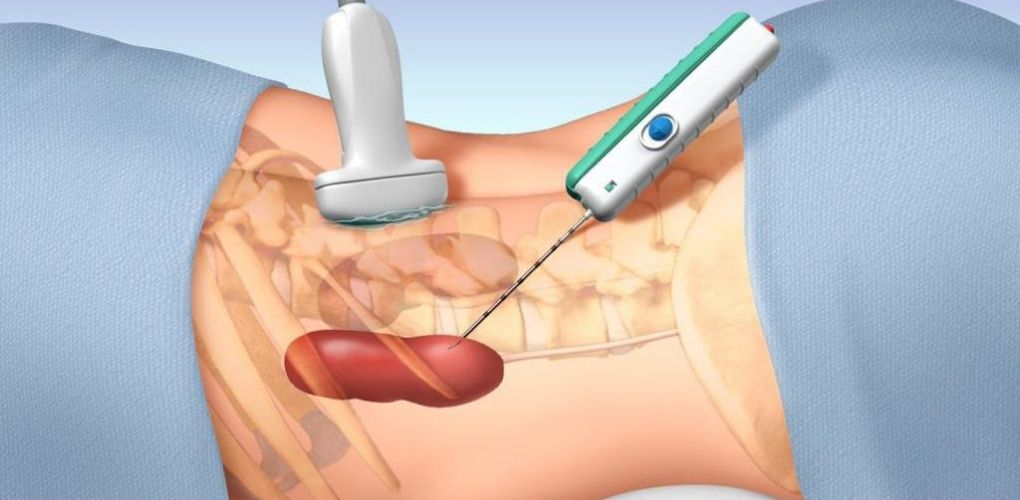Why is a Biopsy Required in Cancer Treatment?
Cancer cells grow uncontrollably to produce more and more cells by invading and detaching themselves from the tumor and traveling to various other parts. While most tests indicate cancer or a tumor’s presence, only a biopsy can confirm a treatment type, e.g., during a scanning process, an abnormality or a mass can be detected, but they alone can’t confirm presence. Hence, a biopsy is a recommended way by many experts to diagnose most types of cancers. With the help of a biopsy, non-cancerous cells can be differentiated from cancerous cells.
Table of Contents
What is Biopsy?
Depending on the infected area, a tissue sample is collected from the skin, organ, or infected area in the procedure, which is then sent to a laboratory for detailed analysis to confirm cancer’s presence. If you are located in Bangalore and have cancer symptoms, you can find the best Cancer Hospital in Bangalore through a portal named Credihealth. Credihealth is India’s leading health portal that has partnered with the most prominent and reputed hospitals to make healthcare available at ease for ordinary people.
Importance of a biopsy during cancer treatment
A biopsy is a correct approach to determine whether or not you have cancer. Ultrasound and magnetic resonance imaging (MRI) are two other methods that might alert a doctor whether a region appears questionable. However, in most situations, a biopsy and examination of the suspicious cells under a microscope are the only ways to obtain a definitive cancer diagnosis. Image-guided biopsies use ultrasound, or computed tomography (CT) scans to help find regions of concern and retrieve biopsy material.
A biopsy may indicate that the problematic area contains benign (non-cancerous) cells. The biopsy outcome could indicate that you don’t require treatment such as surgery, radiation, or chemotherapy. A biopsy can also tell a Cancer doctor how aggressive cancer appears to be and how far the disease has spread. This outcome refers to the stage and grade of malignancy. A biopsy might also reveal the sort of cancer cells that are present within the tumor. All of this data aids in determining the best course of action for cancer treatment.
The importance of biopsies is even expanded with its inclusion in biomarker studies into clinical trials. Predictive biomarkers help in streamlining drug development via
- Smaller trial design enablement
- Identification of targets based on biology
Types of Biopsy helpful in cancer’s diagnosis
Several types of biopsies exist, and a doctor chooses the type of biopsy depending on your condition and suspected infected area. Irrespective of the type of biopsy performed, a patient is given local anesthesia to numb the site when an incision is made. Below are the type of biopsies
1. Bone marrow Biopsy
Larger bones like the hip or the leg’s femur, a spongy material called marrow, are produced. The biopsy is being performed when there is a suspicion of cancer’s spread to these bones via blood.
2. Endoscopic Biopsy
The doctor uses a device called an endoscope fitted with a tiny camera. The endoscope is inserted via natural openings like the mouth, nose, rectum, or urethra. The suspected cancerous tissue is being taken using a surgical tool attached to the endoscope.
3. Needle Biopsy
Needle biopsy is performed when a patient is suspected of skin cancer. Different types of biopsies like core needle biopsy, fine needle biopsy, image-guided biopsy, and vacuum-assisted biopsy are performed to collect skin samples or any issue under the human skin.
4. Surgical biopsy
In exceptional cases, any of the biopsies mentioned above is efficient or safe. In that case, a minor surgery needs to be performed using a traditional incision or a laparoscope to react to the suspected cancerous area to collect a sample.
There are other types of biopsies as well, but every biopsy is not related to cancer. The above biopsies’ outcomes are returned within 24 to 48 hours. Following that, your treatment starts. A Cancer Patient who is unaware of the biopsy diagnosis may discuss with a doctor the risks & complications of biopsy and after procedure care. Biopsies are an essential component of cancer treatment, as they help a patient get the right possible treatment considering the patient’s health condition.
Risks and Complications from a Biopsy
Usually, after a biopsy, you may feel pain around the area for the next two or three days where the biopsy is done. There are strong chances of bleeding from that site too. However, as time passes, these should get resolved on their own. Below are a few complications that may arise due to biopsy
- Excessive bleeding (hemorrhage)
- Infection
- Puncture damage to nearby tissue or organs
- Skin numbness around the biopsy site
- delay in healing with the wound
To avoid such complications and risks, you can do the below items
- Rest as much as you can for the next couple of days
- Limited use of body part where the biopsy is performed
- Avoid heavy weight lifting
- Keep your wounded area dry as much as possible
- Follow any other instruction given by your doctor
There are many cancer hospitals in Bangalore that do cost-effective and efficient biopsies. You should choose the best cancer hospital in Bangalore to have an accurate diagnosis of cancer if you have any. Credihealth can help you find the best cancer hospital in Bangalore or unable to decide on cancer treatment or diagnostic option can visit Credihealth. This online healthcare portal allows you to provide all information about cancer treatment and the best hospital anywhere in India. Individuals looking for other medical services such as home attendant care, online medicine ordering, appointment scheduling, tele & video consultation, and many more facilities can browse all this on Credihealth.
Useful Links: Early Symptoms of Cancer
What to do when cancer is detected?
Laser Treatment for Skin Cancer




